-
 Bitcoin
Bitcoin $86,906.4578
3.17% -
 Ethereum
Ethereum $1,621.1765
3.07% -
 Tether USDt
Tether USDt $0.9998
-0.03% -
 XRP
XRP $2.1070
2.80% -
 BNB
BNB $600.5908
1.76% -
 Solana
Solana $137.7789
0.81% -
 USDC
USDC $0.9998
-0.01% -
 Dogecoin
Dogecoin $0.1607
4.32% -
 TRON
TRON $0.2411
-1.69% -
 Cardano
Cardano $0.6393
4.05% -
 Chainlink
Chainlink $13.3753
3.31% -
 Avalanche
Avalanche $20.4119
5.58% -
 UNUS SED LEO
UNUS SED LEO $9.0359
-3.42% -
 Stellar
Stellar $0.2566
6.27% -
 Toncoin
Toncoin $3.0000
1.03% -
 Shiba Inu
Shiba Inu $0.0...01254
2.94% -
 Sui
Sui $2.2315
6.54% -
 Hedera
Hedera $0.1694
5.13% -
 Bitcoin Cash
Bitcoin Cash $337.3603
0.83% -
 Polkadot
Polkadot $3.8884
2.25% -
 Litecoin
Litecoin $79.7774
5.26% -
 Hyperliquid
Hyperliquid $17.7796
0.54% -
 Dai
Dai $0.9999
-0.01% -
 Bitget Token
Bitget Token $4.4332
0.60% -
 Ethena USDe
Ethena USDe $0.9990
-0.02% -
 Pi
Pi $0.6321
0.92% -
 Monero
Monero $216.3678
0.70% -
 Uniswap
Uniswap $5.4062
4.50% -
 Pepe
Pepe $0.0...07856
6.63% -
 Aptos
Aptos $5.1487
4.72%
How is blockchain applied to the gaming industry?
Blockchain revolutionizes gaming by using NFTs for verifiable in-game asset ownership, creating player-driven economies, and enabling DAOs for community governance; however, scalability and user experience remain significant hurdles.
Mar 14, 2025 at 10:10 pm
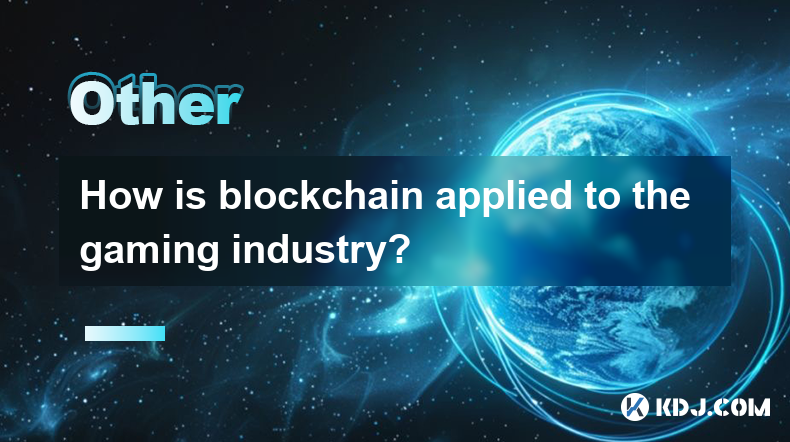
Key Points:
- Blockchain technology offers enhanced security and transparency in game assets.
- Non-fungible tokens (NFTs) are revolutionizing in-game item ownership and trading.
- Decentralized Autonomous Organizations (DAOs) can empower players with greater control.
- Blockchain-based games offer new economic models with player-owned economies.
- Scalability and user experience remain challenges for mainstream adoption.
How is Blockchain Applied to the Gaming Industry?
The gaming industry is undergoing a significant transformation thanks to the integration of blockchain technology. This integration is primarily driven by the potential to revolutionize how games are developed, played, and monetized. The core element of this revolution lies in the ability of blockchain to create verifiable and secure digital assets, unlike traditional centralized systems. This opens up exciting possibilities for players and developers alike.
One of the most prominent applications of blockchain in gaming is the use of Non-Fungible Tokens (NFTs). NFTs represent unique digital items, from in-game skins and characters to virtual land and collectibles. Because they reside on a blockchain, their ownership is verifiable and immutable, preventing duplication or fraudulent claims. This creates a genuine sense of ownership for players, allowing them to truly own and trade their in-game assets.
The immutability of NFTs also facilitates a vibrant secondary market for in-game items. Players can buy, sell, and trade their NFTs on various marketplaces, generating additional revenue streams for both players and game developers. This contrasts sharply with traditional games where in-game items are typically tied to a specific account and cannot be transferred. The decentralized nature of blockchain allows for peer-to-peer trading, reducing reliance on centralized marketplaces and intermediaries.
Beyond NFTs, blockchain is also being used to create decentralized game economies. Players can participate directly in the game's economy by earning cryptocurrency or tokens for their in-game achievements. This creates a sense of ownership and investment in the game's success, fostering a more engaged and loyal player base. These economies are often self-sustaining, operating independently of the game developers' control.
Decentralized Autonomous Organizations (DAOs) represent another significant application of blockchain in gaming. DAOs are community-governed organizations where players can participate in decision-making processes related to game development and governance. This allows for a more collaborative and democratic approach to game design, empowering players to influence the future direction of their favorite games. DAO governance often uses token voting mechanisms, providing a transparent and verifiable process for decision-making.
The integration of blockchain in gaming also opens doors to new game mechanics and play styles. Games can incorporate blockchain-based elements that reward players for their contributions to the game's ecosystem. This could involve tasks such as reporting bugs, contributing to game development, or actively participating in community events. Such systems encourage player engagement and foster a sense of community ownership.
However, there are challenges to overcome. The scalability of blockchain networks is a major hurdle. Processing a large number of transactions required by a massively multiplayer online game (MMOG) can be computationally expensive and slow. This can negatively impact the user experience, leading to lag and delays. Furthermore, the technical complexity of blockchain can create barriers to entry for both players and developers. User-friendly interfaces and educational resources are crucial for widespread adoption.
Another challenge is the volatility of cryptocurrency markets. The value of in-game assets, often represented by cryptocurrencies or tokens, can fluctuate significantly. This can create uncertainty and risk for players, especially those heavily invested in the game's economy. This volatility needs to be managed carefully to prevent negative impacts on player experience.
Despite these challenges, the potential of blockchain in the gaming industry is immense. It offers a unique opportunity to create more engaging, transparent, and player-centric gaming experiences. The ongoing development of more scalable and user-friendly blockchain solutions is key to unlocking this potential.
Common Questions and Answers:
Q: What are the benefits of using blockchain in gaming?
A: Blockchain offers enhanced security and transparency in game assets, enabling true ownership through NFTs, facilitating a vibrant secondary market, creating player-owned economies, and empowering players through DAOs.
Q: How do NFTs impact the gaming industry?
A: NFTs transform in-game items into unique, verifiable assets that players truly own and can trade, creating new revenue streams and fostering a more active player base.
Q: What are the challenges of integrating blockchain into games?
A: Scalability issues, the technical complexity of blockchain, and the volatility of cryptocurrency markets are key challenges that need to be addressed for mainstream adoption.
Q: What is a DAO in the context of blockchain gaming?
A: A DAO is a decentralized autonomous organization that allows players to participate in the governance and decision-making processes of a game, fostering a more collaborative and player-centric approach.
Q: Are there examples of successful blockchain games?
A: While widespread adoption is still in its early stages, several games are successfully integrating blockchain elements, demonstrating the potential of this technology. Specific examples often depend on current trends and market activity.
Q: How can I learn more about blockchain gaming?
A: Numerous online resources, including articles, tutorials, and developer communities, provide information on blockchain technology and its application in the gaming industry. Staying updated on industry news and technological advancements is crucial.
Disclaimer:info@kdj.com
The information provided is not trading advice. kdj.com does not assume any responsibility for any investments made based on the information provided in this article. Cryptocurrencies are highly volatile and it is highly recommended that you invest with caution after thorough research!
If you believe that the content used on this website infringes your copyright, please contact us immediately (info@kdj.com) and we will delete it promptly.
- Elixir AI Disrupts the Crypto World with Its Cutting-Edge 3D Content Generation Platform
- 2025-04-21 21:00:13
- The Next Big Thing in Web3? Bitcoin Consolidates as Investors Eye Three Top Altcoins: Mantra, Memecoin, and Pi Network
- 2025-04-21 21:00:13
- AI Coins Are on the Rise, $SUBBD Token Leads the Charge by 26%
- 2025-04-21 20:55:13
- MicroStrategy (MSTR) Continues Its Aggressive Bitcoin Buying Strategy in 2025
- 2025-04-21 20:55:13
- MicroStrategy ( Formerly Known as Microstrategy) Has Continued Its Aggressive Bitcoin Buying Strategy in 2025
- 2025-04-21 20:50:12
- MicroStrategy Buys the Dip, Adding 6,556 Bitcoin to Its Holdings
- 2025-04-21 20:50:12
Related knowledge
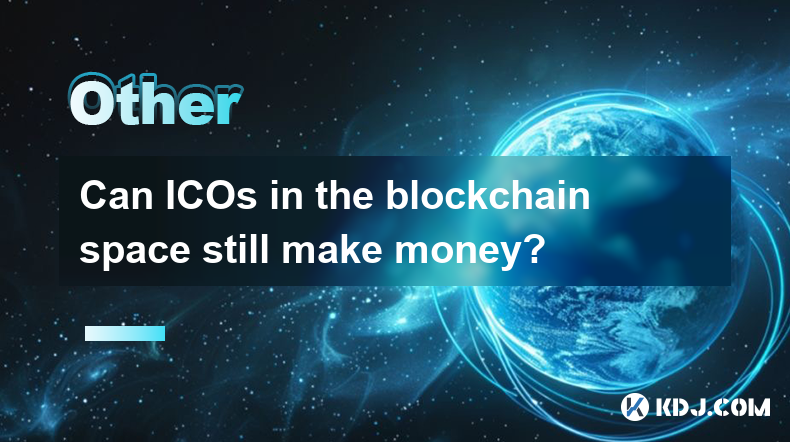
Can ICOs in the blockchain space still make money?
Apr 17,2025 at 08:29pm
The landscape of Initial Coin Offerings (ICOs) in the blockchain space has evolved significantly since their peak in 2017 and 2018. Despite the increased regulatory scrutiny and the rise of alternative fundraising methods like Security Token Offerings (STOs) and Initial Exchange Offerings (IEOs), ICOs can still be a viable way to raise funds and generat...
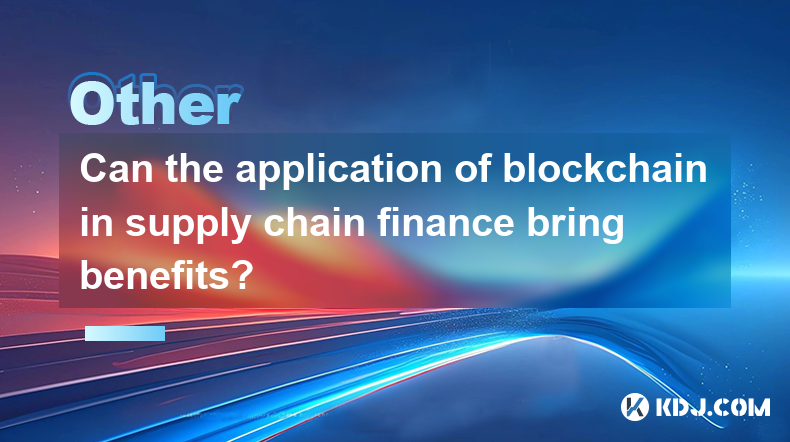
Can the application of blockchain in supply chain finance bring benefits?
Apr 15,2025 at 04:00pm
Can the application of blockchain in supply chain finance bring benefits? The integration of blockchain technology into supply chain finance has garnered significant attention in the cryptocurrency and financial sectors. This article explores how blockchain can potentially revolutionize supply chain finance, detailing its benefits and providing a compre...

Does the ranking of Chinese blockchain apps include cross-chain applications?
Apr 14,2025 at 04:00pm
The ranking of Chinese blockchain apps is a comprehensive evaluation that takes into account various aspects such as user base, transaction volume, and technological innovation. A pertinent question arises regarding whether these rankings include cross-chain applications. Cross-chain applications, which allow different blockchain networks to interact an...
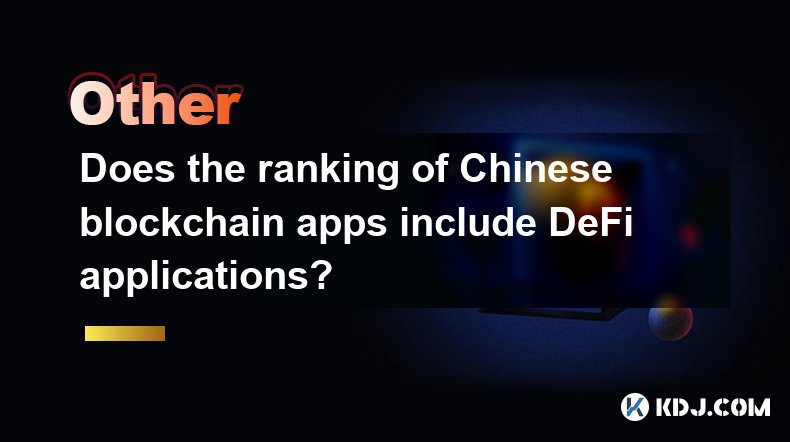
Does the ranking of Chinese blockchain apps include DeFi applications?
Apr 15,2025 at 06:57am
The ranking of Chinese blockchain apps is a comprehensive list that showcases the most popular and influential applications within the cryptocurrency ecosystem. One question that often arises is whether these rankings include DeFi applications. To answer this, we need to delve into the specifics of how these rankings are compiled and what types of appli...
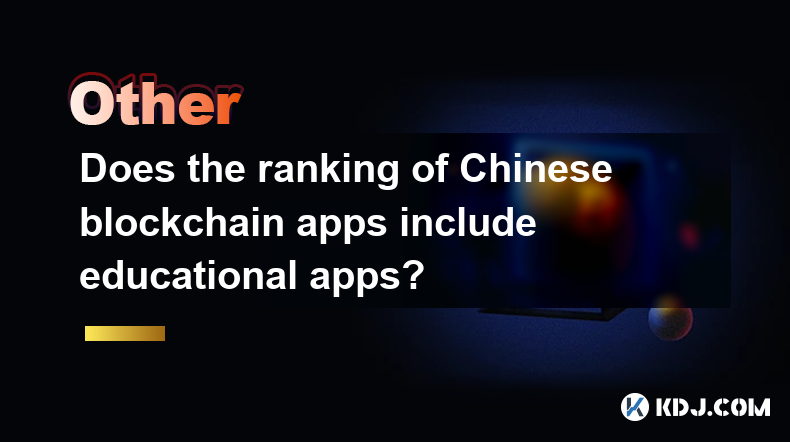
Does the ranking of Chinese blockchain apps include educational apps?
Apr 16,2025 at 03:35am
The ranking of Chinese blockchain apps often includes a variety of categories, from finance and gaming to social networking and beyond. One question that frequently arises is whether these rankings include educational apps. To address this, we need to delve into the specifics of how blockchain apps are categorized and ranked in China, and whether educat...
Does the ranking of Chinese blockchain apps include enterprise-level applications?
Apr 15,2025 at 06:42am
The ranking of Chinese blockchain apps often includes a variety of applications, ranging from consumer-focused to enterprise-level solutions. Understanding the scope and criteria for these rankings is essential to determine if enterprise-level applications are included. This article delves into the specifics of how Chinese blockchain app rankings are co...

Can ICOs in the blockchain space still make money?
Apr 17,2025 at 08:29pm
The landscape of Initial Coin Offerings (ICOs) in the blockchain space has evolved significantly since their peak in 2017 and 2018. Despite the increased regulatory scrutiny and the rise of alternative fundraising methods like Security Token Offerings (STOs) and Initial Exchange Offerings (IEOs), ICOs can still be a viable way to raise funds and generat...

Can the application of blockchain in supply chain finance bring benefits?
Apr 15,2025 at 04:00pm
Can the application of blockchain in supply chain finance bring benefits? The integration of blockchain technology into supply chain finance has garnered significant attention in the cryptocurrency and financial sectors. This article explores how blockchain can potentially revolutionize supply chain finance, detailing its benefits and providing a compre...

Does the ranking of Chinese blockchain apps include cross-chain applications?
Apr 14,2025 at 04:00pm
The ranking of Chinese blockchain apps is a comprehensive evaluation that takes into account various aspects such as user base, transaction volume, and technological innovation. A pertinent question arises regarding whether these rankings include cross-chain applications. Cross-chain applications, which allow different blockchain networks to interact an...

Does the ranking of Chinese blockchain apps include DeFi applications?
Apr 15,2025 at 06:57am
The ranking of Chinese blockchain apps is a comprehensive list that showcases the most popular and influential applications within the cryptocurrency ecosystem. One question that often arises is whether these rankings include DeFi applications. To answer this, we need to delve into the specifics of how these rankings are compiled and what types of appli...

Does the ranking of Chinese blockchain apps include educational apps?
Apr 16,2025 at 03:35am
The ranking of Chinese blockchain apps often includes a variety of categories, from finance and gaming to social networking and beyond. One question that frequently arises is whether these rankings include educational apps. To address this, we need to delve into the specifics of how blockchain apps are categorized and ranked in China, and whether educat...

Does the ranking of Chinese blockchain apps include enterprise-level applications?
Apr 15,2025 at 06:42am
The ranking of Chinese blockchain apps often includes a variety of applications, ranging from consumer-focused to enterprise-level solutions. Understanding the scope and criteria for these rankings is essential to determine if enterprise-level applications are included. This article delves into the specifics of how Chinese blockchain app rankings are co...
See all articles






















































































